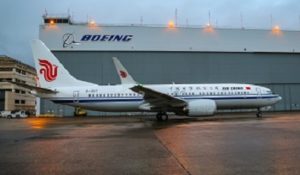Asia-Pacific airlines meet in Japan to address major challenges
Tokyo : Most economies across the Asia-Pacific region continue to grow relatively strongly, with the region’s dynamic and innovative airlines having seen both passenger and freight traffic increase significantly over the past 12 months.
Prospects for further growth remain positive, with Asia already the world’s largest aviation market.
Against this backdrop, delegates gathering for this year’s Assembly of Presidents of the Association of Asia Pacific Airlines (AAPA) in Tokyo have reason for optimism for the long term. More immediately, however, airlines are focused on tackling a number of major challenges.
Safety remains the industry’s number one priority and although overall standards remain very high, Asia-Pacific carriers are constantly striving to make further improvements and learn from the experience of any accident or incident. The losses of MH370 and MH17 this year raise a number of important issues confronting the industry, including procedures related to aircraft tracking, and governing flights over conflict zones.
Although Asia-Pacific airlines continue to invest heavily in the latest generation of fuel efficient aircraft to meet traffic growth demands, there is an increasing concern about the need for corresponding long term investments in related aviation infrastructure, including airport terminals, runways and air navigation services. Governments have key roles to play in coordinating such investments and ensuring that the necessary regulatory oversight of the industry keeps pace with growth.
Environment remains another key issue for Asia-Pacific carriers, with industry committed to sustainability targets including 1.5% per annum fuel efficiency improvements and the development of a global market based measure to achieve carbon-neutral growth from 2020 onwards. The entire industry is working closely with governments through the International Civil Aviation Organisation (ICAO) to deliver on these targets, through a four pillar strategy comprising technology, alternative fuels, operations and infrastructure improvements, as well as a global market based measure utilising carbon offsets.
No less important as a priority for many Asia-Pacific carriers is an early return to profitability. Collectively, Asian carriers have seen a dip in yields this year as a result of intense market competition and signs of surplus capacity. Airlines are carefully reviewing their fleet and network development plans, whilst maintaining a tight rein on costs in a bid to restore profitability and sustain further investments for the future. On a more positive note, after many years of stagnant market conditions in the wake of the global financial crisis, air cargo volumes are picking up, very much welcomed by Asian airlines, which account for 38% of the global air cargo market.
“With Asia continuing to rise on the global stage, the long term prospects for the region’s carriers are still very positive, but there can be no question that airline leaders gathering in Tokyo this week are under pressure to make decisions that ensure that this optimistic outlook becomes a reality,” said Andrew Herdman, Director General of the AAPA. “For many, a return to profitability in the near future is a particular challenge, which is not made any easier by the current series of economic and political uncertainties prevailing around the world.” Asia Travel Tips japantoday com














